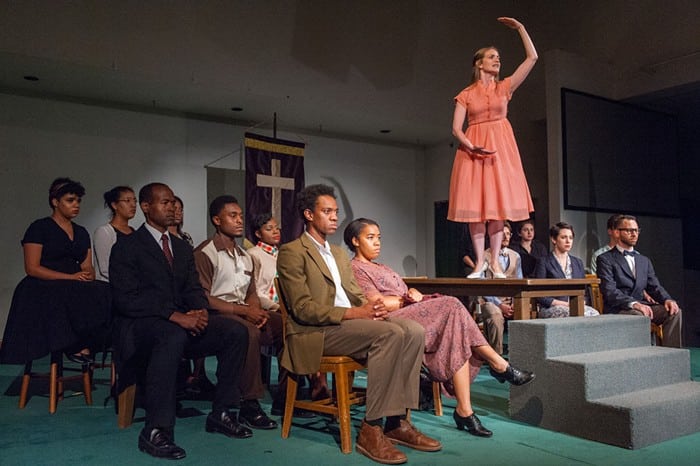By Christopher Frizzelle
James Baldwin was not a huge fan of American theater. He called it, “commercial… stale, repetitious, and timid.” But for years he had an idea that he could not get out of his head. He wanted to write a play based on the tragically short life of Emmett Till, the 14-year-old who was murdered in Mississippi in 1955 after offending a white woman in a grocery store.
As Baldwin recalled almost a decade after Till’s death:
I do not know why the case pressed on my mind so hard—but it would not let me go. I absolutely dreaded committing myself to writing a play—there were enough people around already telling me that I couldn’t write novels—but I began to see that my fear of the form masked a much deeper fear. The fear was that I would never be able to draw a valid portrait of the murderer.
As the Williams Project proves with their new production of Blues for Mister Charlie, Baldwin mastered the challenge, and then some. In doing so, he created a play that’s revelatory, compelling, deep, and shocking. It’s arguably more shocking in 2017 than it was in 1964, given the nonstop use of the n-word, the then-current attitudes toward women (even the racially enlightened white folks are horribly sexist), and the relatively scant social progress made since then.
